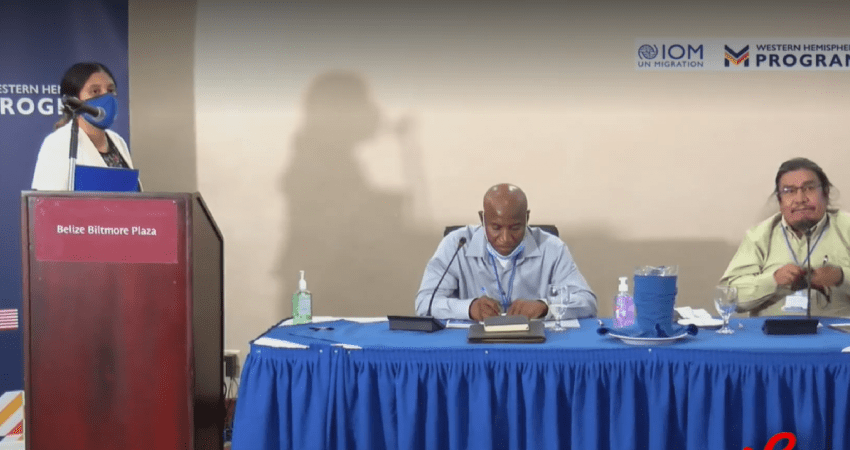IOM presents key findings to improve recruitment in the Belizean citrus industry

On September 16th, the International Organization for Migration discussed key findings on ethical recruitment, based on the new Study entitled: Mapping the current needs of the Citrus Industry regarding Labour Migration and Ethical Recruitment Practices in Belize.
The Labour Force Survey 2020 indicates that migrants make up 18.7 percent of the Belizean labour force, but over 70 percent of the workers in the citrus industry. Thus, the project aimed at identifying internal and external strengths, challenges, opportunities, and threats in the agriculture sector as it pertains to labour migration and creating a roadmap for future activities.
Among other findings, the study highlighted the continuous fall of production in the citrus industry since 2005 (which, to a great extent was a result of crop diseases such as citrus greening) and inadequate structures as influences on recruitment practices in the country.
The researchers highlighted lengthy processes, complaints about costs and processes that can be improved, as recruitment is normally done by word of mouth. They concluded their presentation calling for stakeholder buy-in, which would make positive impacts towards an orderly migration system.
Attending the launch were representatives from Citrus Growers Association, Citrus Products of Belize Ltd and Belize Citrus Mutual; as well as the Belize Business Bureau, The Ambassador of Guatemala in Belize and the CEO of the Belize Labour Department. These stakeholders all play a pivotal role in establishing ethical recruitment practices are in Belize.
Valentino Shal, CEO of the Labour Department, closed the event by emphasizing new, up-coming efforts to review and revise the existing Temporary Employment Polices, in partnership with IOM Belize, that would address the recommendations, which are centered on the application of IRIS standards and the need for the legislation to be ILO compliant.
This study was developed by IOM within the framework of the Western Hemisphere Program, funded by the U.S. Department of State Bureau of Population, Refugees and Migration.